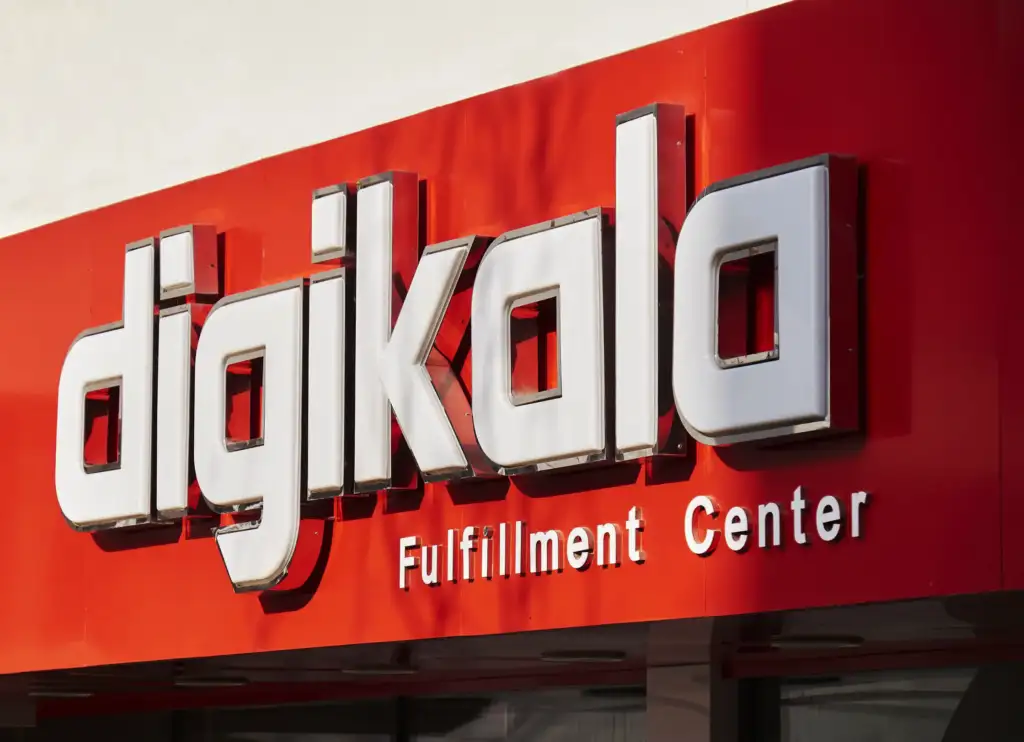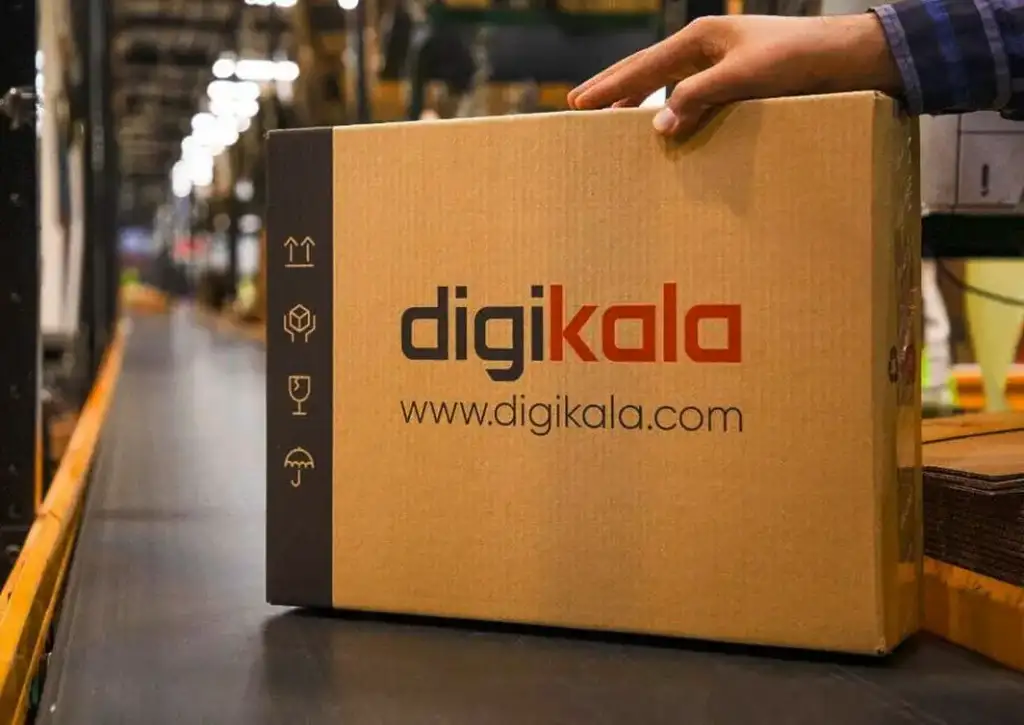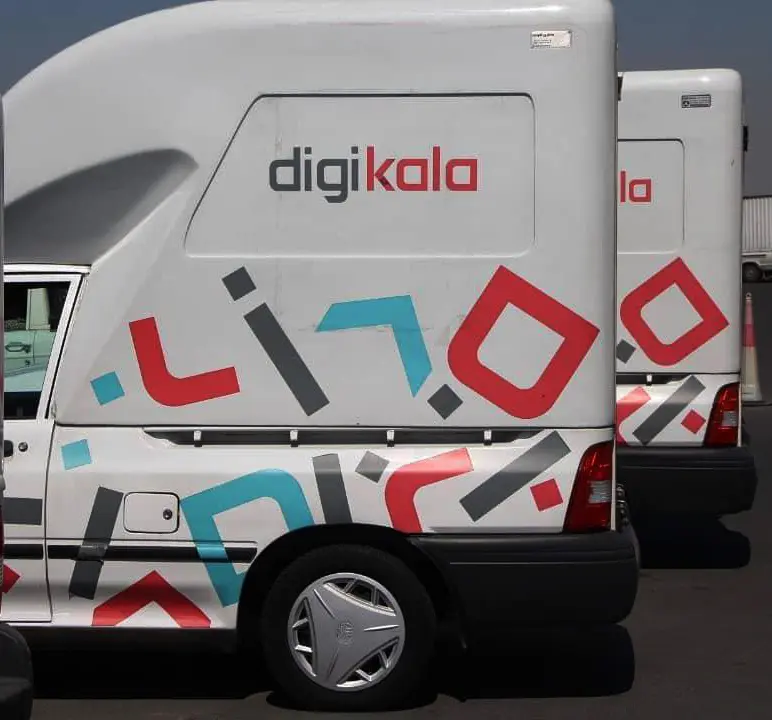
Digikala
In the busy center of Tehran, a quiet change has transformed Iran’s retail and fintech scene. This change is Digikala, Iran’s top online marketplace, which has become a key part of the country’s digital economy. With its fresh business approach, Digikala has changed how people shop and set new rules for product quality and customer care in the area. The platform’s big success shows the growing startup culture in Tehran proving how tech and smart business ideas can join to create a strong e-commerce company.
This article digs deep into Digikala’s history and rapid growth showing how it changed from a small startup to a big player in Iran’s online shopping world. You’ll learn about the many products and services Digikala offers highlighting how it meets the different needs of Iranian shoppers.
Also, we’ll look at Digikala’s smaller companies and how they help it grow and branch out. We’ll talk about the problems and arguments that came up as Digikala got bigger giving a fair view of its journey. To wrap up, we’ll sum up how Digikala has changed Iran’s digital market and what it might do next.

History and Growth
Founding Story
Hamid Mohammadi and Saeid Mohammadi started Digikala in 2006 after they had trouble buying a digital camera. They put $10,000 of their own money into the business to get it going. This laid the groundwork for what would grow into a big name in Iran’s online shopping world.
Major Milestones

At first, Digikala began with a small operation selling computer add-ons and a few printers. The company grew a lot increasing its workforce from 5 to more than 200 by 2007. In 2014, it planned to hire over 500 people by year’s end. This growth matched the rise in Digikala’s value, which jumped from $150 million in 2014 to $500 million by late 2015. The platform got a big boost from more Iranians using the internet and better online payment systems, which made people trust internet banking and buying things online more.
Current Valuation and Size
As of 2021, Digikala had over 4 million products on offer, with almost 160,000 sellers supporting the platform. Each month, 30 million people visited the site, and it saw 17.2 million daily visits. By May 2022, it became the second most visited website in Iran. While Digikala didn’t share its revenue numbers, it reported yearly sales growth of 200% getting orders from even the most far-off villages in Iran. This growth shows how Digikala has a big effect on Iran’s online world and how it’s becoming a key part of it.
Products and Services
Main Product Categories

Digikala has grown its product range a lot since it started. It began by selling digital and electronic items, but now it offers many different consumer products. Recent reports show Digikala now has more than 9.7 million Stock Keeping Units (SKUs) in stock. These include sports and entertainment goods, electronics, groceries personal products, and digital products. This wider range of products helps Digikala to meet the different needs of its customers giving them a full shopping experience.
Additional Services
Besides its wide range of products, Digikala has launched several services to improve customer experience. These include “Express Delivery,” which guarantees same-day delivery for orders made before 6:00 PM in Tehran, and the “Pick Up & Drop Off” (PUDO) project, which allows customers to pick up their orders at specific locations. Digikala has expanded PUDO spots and introduced smart lockers called Ganje enabling over 48,000 customers to collect their orders when it suits them. Also, Digikala now offers installment credit options and micro-credit payments making online shopping easier for more people.
Customer Service and Return Policies

Digikala focuses on making customers happy. It keeps a close eye on product quality and pricing. Each year, it checks over 50,000 reviews and 7,000 user reports to make sure they’re real and prices are fair. The company has an impressive on-time delivery rate of 93.9% across Iran showing how well it runs its operations. Digikala also lets customers return many of its products, which makes shopping even better. All this hard work has paid off, with 82% of customers saying they’re satisfied. This proves Digikala’s commitment to top-notch service and support.
Subsidiaries
Fidibo
Fidibo, a top Persian e-book store started in March 2014. Digikala bought a stake in Fidibo in 2016 and became its main owner by 2017. Fidibo has grown to be a key player in the Persian language e-book scene aiming to offer a broad range of digital content to many types of readers.
Digistyle
Digistyle started in 2016 as an online store for fashion and clothing. Digikala and Lilian Mode Trading company run it together. The store sells many brands and styles giving shoppers a one-of-a-kind experience.
Digipay

Digipay began in 2018 to handle payments on phones and websites. It provides Smart IPG, dashboards for merchants to manage their accounts, and options to buy things in installments. These services help more people in Iran use digital money.
Komoda
Komoda, which started in July 2018 and joined the Digikala group in late 2019, works as a social platform to buy and sell. It aims to give users especially women more power by creating a marketplace where they can gain financial freedom through their sales.
Pindo
Pindo began in 2021 as a platform for people to post ads to buy and sell from each other. It doesn’t charge any fees, which makes buying and selling easier for small and medium-sized businesses.
Smartech
Smartech became part of the Digikala group in 2019 and offers marketing technology services. It provides tools like marketing automation and platforms for customer data, which help businesses make their marketing more effective.
DigiExpress
DigiExpress came into being in 2019. It offers complete online logistics services. The company helps online and offline sellers process and deliver orders . It uses cutting-edge tech to deliver fast service.
Digikala Jet
Digikala Jet began operations in 2021. It provides personalized online grocery service in big cities like Tehran, Karaj, Mashhad, and Shiraz. The company tea\\ams up with popular local stores to offer cheap and easy shopping options.
Challenges and Controversies
Economic Challenges

Digikala, a key player in Iran’s startup scene, struggles with major money problems. These stem from Iran’s ongoing economic mess. The company has to deal with long-term high prices sanctions that make it hard to move money across borders, and the falling value of Iran’s money.
These issues lead to less investment and cause productive money to leave the startup world hitting companies like Digikala hard. Also, the sale of big chunks of shares to companies tied to the government raises worries about the state getting too involved in this field. This could hurt competition and new ideas. To make things worse many smart young Iranians are leaving the country to find work elsewhere. This leaves companies like Digikala stuck with limited products and almost no money from outside Iran.
Legal Issues
Digikala has run into quite a few legal problems. People have accused it of disrespecting religion by making products with names and words that mention important Shia figures. This got Digikala in trouble with Tehran’s courts. On top of that, the government cracked down on the company saying it didn’t follow hijab rules. They raided Digikala’s offices and arrested its CEO. These events show how Digikala has to be careful in Iran’s tricky political and legal scene. One wrong move can lead to big problems.
Product Quality Concerns
Problems with product quality have troubled Digikala, as customers have complained about fake and shoddy items on its site. To address this, Digikala has put strict checks in place to make sure the goods it sells are real and high-quality. The company has promised to be open about whether products are genuine on its website. Even with these steps, Digikala’s issues show how tricky it is to keep customers’ trust while dealing with oversight from the government and public.
In the bustling heart of Tehran, a revolution has been quietly unfolding, one that has redefined the retail and fintech landscape in Iran. This revolution is Digikala, Iran’s leading online marketplace, which has emerged as a cornerstone of the country’s digital economy. With its innovative business model, Digikala has not only transformed the way consumers shop but has also set new standards for quality control and customer service in the region. The platform’s unparalleled success is a testament to the burgeoning startup culture in Tehran, showcasing how technology and visionary entrepreneurship can come together to create a powerhouse in the e-commerce sector.
This article delves into the history and exponential growth of Digikala, exploring how it evolved from a modest startup to a dominant player in Iran’s e-commerce landscape. Readers will gain insights into the diverse range of products and services offered by Digikala, underscoring its role in catering to the varied needs of Iranian consumers. Additionally, the piece will highlight Digikala’s subsidiaries and their contributions to its expansion and diversification strategy. The challenges and controversies that have surfaced alongside its rise will also be discussed, providing a balanced view of its journey. Finally, the conclusion will summarize Digikala’s impact on Iran’s digital market and its potential roadmap for the future.
History and Growth
Founding Story
Digikala was established in 2006 by Hamid Mohammadi and Saeid Mohammadi following a frustrating experience while attempting to purchase a digital camera. The founders invested $10,000 of their personal savings to initiate the company, setting the foundation for what would become a major player in Iran’s e-commerce market.
Major Milestones
Initially, Digikala started with a modest operation, selling computer peripherals and a small selection of printers. The company experienced significant growth, expanding its employee base from 5 to over 200 by 2007. By 2014, it aimed to increase its staff further, planning to recruit more than 500 personnel by the end of the year. This growth was paralleled by an increase in Digikala’s valuation, which escalated from $150 million in 2014 to $500 million by late 2015. The platform significantly benefited from the rising number of internet users in Iran and the development of online payment systems, which enhanced consumer trust in internet banking and online purchases.
Current Valuation and Size
As of 2021, Digikala offered more than 4 million products, supported by nearly 160,000 sellers. The platform attracted 30 million visitors per month and registered 17.2 million visits per day. By May 2022, it ranked as Iran’s second most visited website. Despite not publicizing its revenue figures, Digikala reported a sales growth rate of 200% per year, receiving orders from even the most remote villages across Iran. This growth trajectory underscores Digikala’s significant impact on and integration with Iran’s increasingly digital landscape.
Products and Services
Main Product Categories
Digikala has significantly expanded its product range since its inception, transitioning from an exclusive focus on digital and electronic goods to offering a wide array of consumer products. As of recent reports, Digikala’s inventory includes over 9.7 million Stock Keeping Units (SKUs), encompassing categories such as sports and entertainment goods, electronics, groceries, personal products, and digital products. This diversification strategy has allowed Digikala to cater to the varied needs of its customer base, ensuring a comprehensive shopping experience.
Additional Services
In addition to its extensive product offerings, Digikala has introduced several services aimed at enhancing the customer experience. These include the “Express Delivery” option, which ensures same-day delivery for orders placed before 6:00 PM in Tehran, and the “Pick Up & Drop Off” (PUDO) project, which provides convenience for customers preferring to pick up their orders at designated locations. The expansion of PUDO locations and the introduction of smart lockers named Ganje have facilitated over 48,000 order pickups by customers at their convenience. Furthermore, Digikala has implemented installment credit options and micro-credit payments, making online shopping more accessible for a broader audience.
Customer Service and Return Policies
Digikala places a significant emphasis on customer satisfaction, as evidenced by its diligent monitoring of product quality and pricing, alongside reviewing over 50,000 reviews and 7,000 user reports annually to ensure authenticity and fair pricing. The platform boasts an impressive on-time delivery rate of 93.9% across the country, underscoring its commitment to operational excellence. Additionally, Digikala offers a return option for a wide range of its products, further enhancing the customer shopping experience. These efforts have resulted in a robust customer satisfaction rate of 82%, reflecting Digikala’s dedication to maintaining high standards of service and support.
Subsidiaries
Fidibo
Fidibo, a leading Persian e-book store, began operations in March 2014. Digikala acquired an interest in Fidibo in 2016 and became its main owner by 2017. Fidibo has established itself as a dominant player in the Persian language e-book market, focusing on providing a wide range of digital content accessible to diverse audiences.
Digistyle
Founded in 2016, Digistyle serves as an online fashion and clothing store. It operates under a joint venture between Digikala and Lilian Mode Trading company, offering a vast assortment of brands and styles, ensuring a unique shopping experience for its customers.
Digipay
Digipay, launched in 2018, focuses on mobile and web payments. It offers services such as Smart IPG, merchant management dashboards, and installment purchase facilities, contributing significantly to financial inclusion in Iran’s digital economy.
Komoda
Komoda, initiated in July 2018 and incorporated into the Digikala group by late 2019, operates as a social buy-and-sell platform. It emphasizes empowering users, particularly women, by providing a marketplace for them to achieve financial independence through their transactions.
Pindo
Launched in 2021, Pindo is a platform designed for consumer-to-consumer advertisements, facilitating a commission-free environment for buying and selling, thereby enhancing the e-commerce experience for small and medium-sized enterprises.
Smartech
Smartech, added to the Digikala group in 2019, offers marketing technology services. It provides solutions like marketing automation and customer data platforms, helping businesses enhance their marketing effectiveness.
DigiExpress
Founded in 2019, DigiExpress provides comprehensive online logistics services. It supports both online and offline sellers in the efficient processing and delivery of orders, using advanced technology to ensure speedy service.
Digikala Jet
Digikala Jet, started in 2021, is a personalized online grocery service available in major cities such as Tehran, Karaj, Mashhad, and Shiraz. It collaborates with well-known local stores to offer cost-effective and convenient shopping solutions.
Challenges and Controversies
Economic Challenges
Digikala, a leading figure in Iran’s startup ecosystem, faces substantial economic hurdles partly due to the country’s ongoing economic crisis. The challenges include long-term inflation, international sanctions impeding currency transfers, and the depreciation of Iran’s national currency. These factors contribute to a recession in investment and the withdrawal of productive capital from the startup sector, severely impacting companies like Digikala. Moreover, the sale of significant shares to quasi-governmental companies raises concerns about the state’s growing influence in the sector, potentially stifling competition and innovation. The situation is further exacerbated by a significant brain drain, as young Iranian talent seeks opportunities abroad, leaving companies like Digikala grappling with product limitations and minimal international funding.
Legal Issues
Digikala has encountered several legal challenges, including accusations of blasphemy for designing products with names and texts referencing holy Shia figures. This led to the prosecution of Digikala in Tehran’s general and revolutionary courts. Additionally, the company faced government crackdowns for alleged non-compliance with compulsory hijab regulations, resulting in office raids and the arrest of its CEO. These incidents underscore the tightrope Digikala walks in navigating Iran’s complex political and legal landscape, where a misstep can lead to severe repercussions.
Product Quality Concerns
Concerns over product quality have also plagued Digikala, with complaints about unoriginal and low-quality products sold on its platform. In response, Digikala has implemented stringent control measures to ensure the authenticity and quality of goods offered, committing to transparency regarding product genuineness on its website. Despite these efforts, the company’s challenges highlight the intricate balance required to maintain customer trust while operating under the scrutiny of both the government and the public.
Conclusion
Looking at Digikala’s story, we see how a startup grew into a key player in Iran’s online economy. This shows what new ideas and business smarts can do even in tough times. Digikala didn’t just change online shopping in Iran by selling lots of different things. It also dealt with big money, legal, and business problems to stay on top. The company focuses on good products helping customers, and selling many types of items. This shows how important Digikala is to Iranian shoppers even with money sanctions and other issues at home.
Moving forward, Digikala’s plans have broader effects on Iran’s online scene and how people see Iranian business worldwide. Its steady growth in tough times highlights the strength and promise of Iran’s digital market pointing to chances for more study and teamwork across borders. As Digikala keeps changing, its journey gives key lessons about tech-driven markets in strict settings lighting the way for future business owners in Iran and other places.



